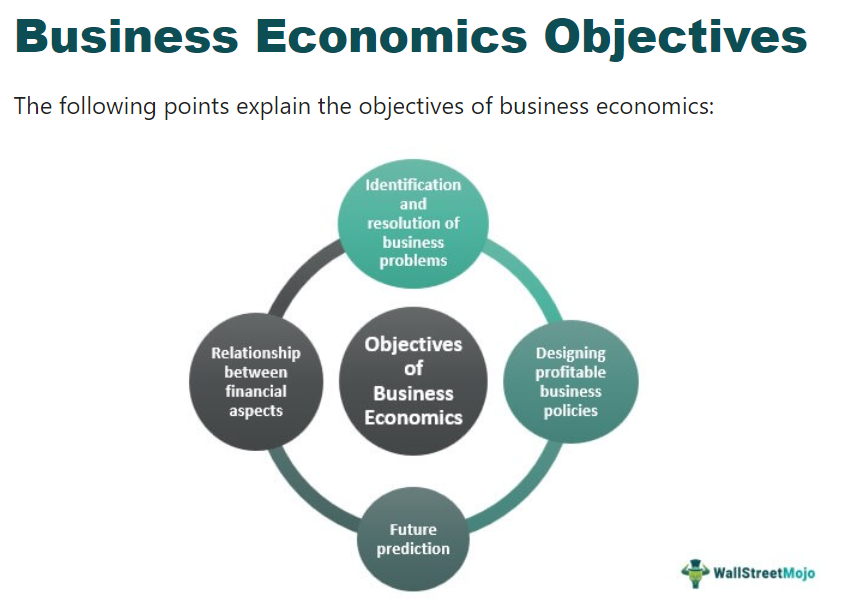How global evolution of Business and Economics is likely to transform international financial systems
How global evolution of Business and Economics is likely to transform international financial systems
Blog Article
Comprehending Economic Concepts for Better Business Decision-Making
In the facility landscape of modern organization, a detailed understanding of financial principles can dramatically boost decision-making processes. By taking a look at factors such as market frameworks and consumer habits, companies can customize their techniques to straighten with competitive characteristics and customer needs. Understandings into need flexibility and chance costs give a structure for optimizing resource appropriation. The application of these economic theories frequently discloses unforeseen obstacles and opportunities that can redefine calculated methods. What implications do these insights hold for the future of organization approach?
The Basics of Economic Theory
Economic concept functions as the structure for comprehending exactly how organizations and people make choices in the existence of shortage. At its core, economic concept checks out the allocation of restricted sources to please unrestricted desires. This basic principle of shortage demands trade-offs, engaging decision-makers to evaluate the advantages and prices connected with various choices.
Both main branches of economic concept are macroeconomics and microeconomics. Microeconomics concentrates on specific representatives, such as firms and customers, examining their habits and interactions in particular markets. It highlights principles like supply and demand, price flexibility, and market stability, which are vital for recognizing exactly how rates are determined and just how resources are dispersed.
Alternatively, macroeconomics analyzes the economic climate in its entirety, addressing more comprehensive issues such as inflation, unemployment, and financial development. It gives insights into systemic sensations that impact all financial representatives, guiding policymakers in crafting reliable financial methods.
Ultimately, a solid grounding in economic theory is essential for effective business decision-making. By understanding the concepts of scarcity, compromises, and market dynamics, organizations can better browse intricate atmospheres and make educated options that improve their competitive advantage.
Key Economic Indicators
Secret financial indicators function as crucial devices for analyzing the health and direction of an economy, supplying useful understandings for organization decision-making. These indications are quantitative procedures that mirror the economic efficiency and can be classified right into leading, delaying, and coincident indicators.
Leading indicators, such as customer confidence indexes and stock exchange patterns, predict future economic activity, enabling services to expect changes on the market. Lagging signs, like unemployment rates and business earnings, offer understandings into the economic climate's previous efficiency, aiding services to assess long-term trends. Coincident indications, such as GDP growth and retail sales, rise and fall simultaneously with the economic situation, providing a real-time snapshot of economic problems.
Recognizing these signs allows services to make informed decisions concerning investments, source allotment, and tactical preparation. By carefully checking these vital financial indicators, organizations can navigate unpredictabilities and place themselves properly in the ever-changing economic landscape, inevitably boosting their decision-making processes and long-term success.

Market Frameworks and Dynamics
Recognizing market frameworks and dynamics is important for companies intending to grow in affordable settings. Market structures, extensively classified right into excellent competitors, monopolistic competition, oligopoly, and monopoly, considerably affect rates strategies, product distinction, and affordable actions. Each framework provides special challenges and chances that can dictate a company's tactical direction.
Oligopolies, defined by a couple of leading gamers, lead to synergistic decision-making; firms should thoroughly consider competitors' actions to their actions. Monopolies exist when a solitary firm controls the market, resulting in optimal rates power yet commonly bring in governing examination.
Recognizing these characteristics allows businesses to anticipate market fads, adapt strategies, and maximize resource recommended you read allotment. In addition, recognizing just how exterior variables like innovation and policy impact these structures can boost tactical planning. By grasping market structures and characteristics, companies can make educated decisions, eventually improving their affordable position and driving sustainable development.
Consumer Actions Insights
Consumer behavior plays a pivotal role fit organization techniques and end results. Comprehending just how consumers make buying choices, their choices, and the elements affecting their behavior can dramatically improve a firm's ability to fulfill market needs. Secret insights into customer behavior can be stemmed from evaluating demographics, psychographics, and behavioral patterns.
Group factors such as age, gender, education and learning, and income level provide a foundational understanding of target markets. Psychographics delve deeper, discovering consumers' attitudes, values, and lifestyles, which can affect brand name commitment and item assumption. Behavioral insights, such as acquiring regularity and response to promos, are indispensable for tailoring advertising initiatives.
In addition, external variables like economic conditions, cultural trends, and technological advancements also affect customer here are the findings options. During financial slumps, consumers may prioritize important goods over high-end products, altering demand patterns.
Using Economics to Technique
Insights obtained from consumer actions are crucial in creating reliable organization techniques. By leveraging economic principles, organizations can better understand market characteristics, optimize resource allotment, and boost affordable placing. Analyzing need flexibility, as an example, enables companies to adjust rates strategies to make best use of earnings while staying appealing to customers.
Additionally, understanding market segmentation allows organizations to customize their offerings, guaranteeing they fulfill the specific needs and choices of varied consumer teams. Business and Economics. This targeted technique boosts customer complete satisfaction and fosters brand loyalty

Including video game theory right into strategic planning likewise supplies understandings into competitive behavior, permitting companies to anticipate competing activities and create counter-strategies successfully.

Verdict
In verdict, a detailed understanding of economic principles significantly improves company decision-making. By checking out market frameworks, reviewing consumer actions, and assessing vital economic signs, firms browse around these guys can develop effective strategies that align with market needs.
In the complicated landscape of modern-day business, a complete understanding of financial concepts can substantially improve decision-making procedures.Leading signs, such as consumer confidence indexes and stock market trends, predict future financial activity, permitting businesses to anticipate changes in the market. By closely checking these key economic indications, businesses can browse unpredictabilities and place themselves successfully in the ever-changing economic landscape, inevitably improving their decision-making processes and lasting success.
By leveraging economic concepts, services can better understand market dynamics, optimize resource appropriation, and improve affordable positioning.In conclusion, a detailed understanding of financial concepts significantly improves business decision-making.
Report this page